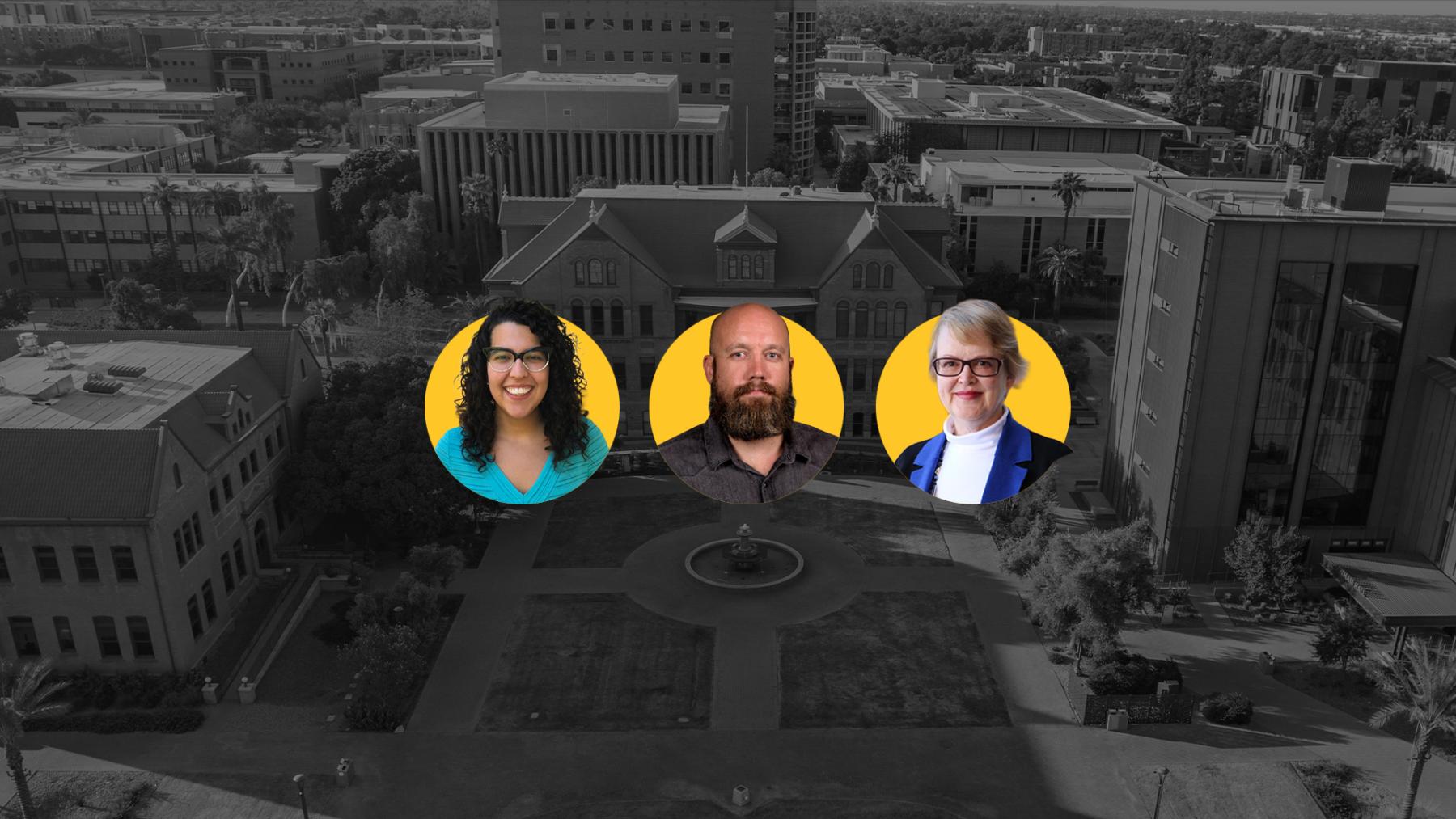
New efforts to include Indigenous, Black and Latinx scholars
Yesterday, October 12, was Indigenous People’s Day. In the 1970s, several U.S. states began to recognize the systemic inequities that resulted from the conquest of the North American continent by recognizing indigenous People’s Day as a counter-celebration of Columbus Day. Arizona State University remains committed to the goal of creating opportunities for all graduate students and postdoctoral fellows. To this end, I want to bring attention to the Graduate Assistantship Program as well as the Graduate College’s effort to include Indigenous scholars in its program of equity and inclusion.
ASU's commitment to create more opportunities for Indigenous and other underrepresented students and scholars
Arizona State University’s President Michael Crow announced the Graduate Assistantship Program for Underrepresented Students and the Presidential Postdoctoral Fellowship Program as two of several programs outlined in ASU's Commitment to Black students, faculty, and staff. The goal of these programs is to create opportunities to recruit and mentor Black, Indigenous, and Latinx and other doctoral and postdoctoral scholars of color to advance the ASU Charter and advance their careers into the professoriate. The Graduate Assistantship Program will offer graduate assistantships, professional development and faculty mentoring to doctoral students in all fields whose research, teaching and service will contribute to diversity, equity, and inclusion at ASU. The Presidential Postdoctoral Fellowship Program will fund a minimum of 30 postdoctoral fellowships for postdocs from underrepresented communities who may continue into a tenure-track position in a long-term effort to diversify the faculty at the university.
New and newly enhanced Graduate College efforts to support BIPOC scholars
Additionally, the Graduate College has launched multiple new initiatives and enhanced existing efforts to support BIPOC students, to be heard by students, and to review policies and procedures with an eye toward equity and inclusion. New initiatives include a student advisory group in which underrepresented graduate students are convened to share their experiences. We intend to use these insights to shape Graduate College professional development programs that are more culturally informed and to review and revise our existing policies and procedures to ensure they are equitable and inclusive. We are also reviewing existing programs like the Interdisciplinary Enrichment Fellowship with the same goal.
Read about Indigenous scholar Jerome Clark's journey to Yale.
Don’t forget about your well-being
The middle of the semester can be tough on graduate students under normal circumstances, so take time to do a self-inventory, not just about where you are in your academic work, but also about your well-being. It’s important to build routines for healthy eating and regular exercise, stay socially connected, seek help when you need it and practice mindfulness. Mindfulness is especially important for graduate students because you face unique stressors. Be sure to read about the coping strategies for staying socially connected and engaged with your academic work that some graduate students have found helpful.
For more mental health and well-being resources or to make an appointment, visit ASU’s Health Services website.
If you have question, ideas or suggestions, please reach out by sending an email to [email protected]

Elizabeth Wentz
Vice Provost and Dean, the Graduate College
More stories from the Graduate Insider

Finding your flow: Managing the graduate writing process
Graduate writing can feel like a marathon—long, demanding, and full of unexpected detours. But as Tristan Rebe, Program Manager for the Graduate Writing Center, reminded students in the Grad15: Managing the Writing Process webinar, writing is not about perfection—it’s about progress. “The best dissertation is a done dissertation,” Rebe said, quoting Robert Frost: the best way out is through.

Promoting resilience and well-being in Ghana — and across the globe

From practice to presentation: How to deliver a winning faculty job talk
Giving a job talk can feel like the most high-stakes presentation of your academic job search. It’s not just a research seminar—it’s your opportunity to demonstrate vision, communication skills, and fit within a department. In a recent Lunch and Learn, faculty members Associate Professor in School of International Letters and Cultures, Anita Huizar-Hernandez, Professor in School of Life Sciences Jeffrey Jensen, and Professor in Department of Physics Patricia Rankin shared concrete strategies to help graduate students and postdocs succeed as future faculty candidates.